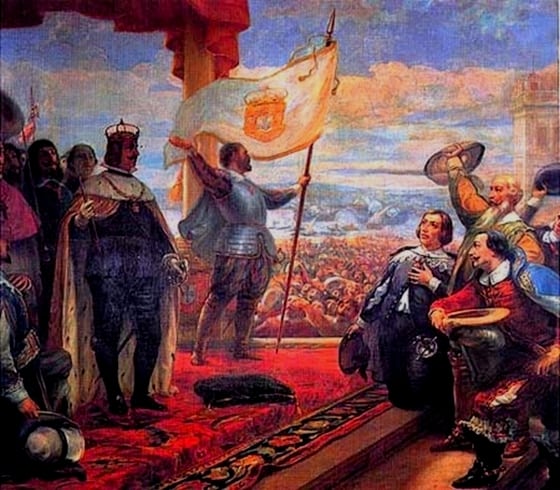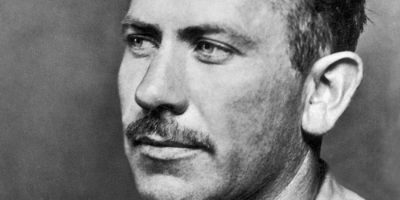10 Famous Portuguese Kings
The Portuguese Republic is located in Southwestern Europe. It is the oldest nation on the Iberian Peninsula and one of the oldest in Europe. Portugal has suffered invasion and foreign settlement from prehistoric times.
A revolution in 1910 deposed the monarchy and the first Portuguese Republic was established. Though unstable, it was democratic. A look at 10 famous Portuguese Kings takes you down memory lane to when Portugal was entirely a monarchy.
1. Manuel I
Manuel the Fortunate as he was called had his rule at a period when numerous Portuguese discoveries were made hence a period of rigorous expansion. His reign was also characterized by religious difficulties as all Moors and Jews who rejected baptism were expelled.
Manuel was the 9th child of Dom Fernando. He lost his father when he was just a year old. King Afonso was reigning at the time and he was Dom Fernando’s brother. He took Manuel under his wing making him Duke of Beja. When his son, heir to the throne died, Afonso recognized Manuel as his heir, eventually leaving him the throne.
Manuel took up his duties as King from 1495. His first agenda was to pardon the banished Braganças and restored their confiscated estates. Portuguese trade with the East opened up around the same time due to Vasco da Gama’s voyage around Africa. Manuel bought into this, sending 13 ships to establish trade relations with the Indian Princes. This expedition enriched Manuel.
Explorers discovered new lands to which Manuel successfully lay claim.
Manuel’s first three wives were Spanish- a condition of one of Manuel’s marriages was the expulsion of Jews! This price was one Manuel was ready to pay. Many Jews had been admitted by John II when they were expelled by Spain.
Manuel issued the order and this was enforced resulting in some Jews leaving while others were forcefully converted. He married Infanta Isabella of Aragon, in return. She and Manuel became heirs to the Spanish throne, but she unfortunately died at childbirth losing the baby as well. Manuel married Isabel’s younger sister thereafter with whom he had 9 children. Isabella’s death brought to an end Portugal’s ambition and chances of ruling Spain.
Manuel died in 1521 and was succeeded by John III of Portugal.
In his rule, Manuel employed royal absolutism. He also had Portugal laws redone with the publication of the Manueline Ordinations.
2. Carlos I
Carlos I was King of Portugal until 1908 when he was assassinated- the first Portuguese king to die a violent death since 1578 when King Sebastian was presumably killed in battle. Dom Carlos I was referred to as the Diplomat and Martyr. He was born in Lisbon Portugal into the Brigantine Dynasty. His concentrated education prepared him for the constitutional monarchy while his travels to various regions gave him insight into modern civilization.
Two republican assassins shot at King Carlos’ open carriage, which had his family as they traveled back to their home in Lisbon. King Carlos died immediately while his heir Luís Filipe died a short while later. His other son, Manuel, was mortally wounded but the queen was unharmed.
With these happenings Prince Manuel took to the throne- he was the final king of Portugal.
Carlos I had interests in deep-sea and maritime exploration, as well as science and the arts. He took Oceanographical voyages using several yachts named Amelia. He also took an active part in the celebration of the 500th anniversary of the birth of Prince Henry the Navigator in 1894. In 1895, he decorated the Portuguese poet João de Deus in a ceremony in Lisbon.
Carlos I married Princess Amélie of Orléans in 1886, daughter of Philippe, Count of Paris, and Princess Marie Isabelle of Orléans. They had three children; Luís Filipe, Prince Royal of Portugal, Infanta Maria Ana of Braganza and Manuel II, King of Portugal.
3. Afonso I
A child sending his mother into exile in order to take over leadership is not something you see every day. This is exactly what Afonso I did in 1128. He and his mother Teresa, Countess of Portugal found themselves on opposite sides of the war.
Afonso I was the first King of Portugal. He is also referred to as ‘The Conqueror’, ‘The Founder’ or ‘The Great’. Afonso I achieved the independence of the County of Portugal and established a new kingdom. He was the son of Henry of Burgundy and Theresa of León who co-ruled Portugal. Henry died in 1112 leaving Theresa at the helm. Her alliance with Galicia displeased the Portuguese nobility who influenced Afonso into revolting and defeating his mother at the Battle of São Mamede.
Afonso married Mafalda of Savoy daughter of Amadeus III, Count of Savoy. He died in 1185 and was succeeded by his son, Sancho I.
Portuguese people revere Afonso and esteem him as a hero- he is the founder of their nation and was also strong in character. Stories have been told demonstrating his greatness- from no other monarch wanting to engage him in personal combat to it taking 10 men to carry his sword, his greatness is revered and perhaps sometimes exaggerated.
4. John I
John I had the longest reign of all Portuguese monarchs. It lasted 48 years. He is recognized for preserving Portugal’s independence and establishing the Aviz dynasty. He played a big role in Portugal’s victory in a succession war with Castile and also initiated Portugal’s overseas expansion- he attempted to acquire Portuguese territories in Africa
John I was referred to as ‘the Good’ or ‘the Great’, and of Fond Memory. In Spain however, his nickname is not very flattering- he is referred to as ‘the Bastard”.
Of titles, John I was the first King of Portugal to use the title “Lord of Ceuta”. He was born in Lisbon in 1357 to King Peter I of Portugal and a woman only identified as Teresa, a noble Galician. He became King by appointment through the Council of the Kingdom.
John I repelled the King of Castille’s attempts at invading and conquering Lisbon and secured the stability of the Portuguese throne.
King John I is described as a man of wit, interested in keeping power for himself but benevolent and kind. He was an unusually learned king for the middle ages- he was a master of a religious order who loved knowledge and culture, which he passed on to his sons.
Historians refer to John I’s children as the illustrious generation- Edward was a poet and a writer, Peter was one of the most learned princes of his time while Prince Henry the Navigator invested heavily in science and the development of nautical pursuits. These children were from John I’s marriage to Philippa of Lancaster, daughter of John of Gaunt, 1st Duke of Lancaster.
5. John II
John II is credited with the re-establishment of the power of the Portuguese monarchy, reinvigorating the Portuguese economy, and renewing his country’s exploration of Africa and the Orient. Perhaps his accompanying his father in the campaigns in northern Africa when he was a prince set John II up for success as a king.
John II was born in Lisbon in 1455, to King Afonso V of Portugal and Isabella of Coimbra. He married his first cousin Leonor of Viseu, an infanta of Portugal.
John II was also keen on concentrating power on himself and ruled in a manner that made it possible for him to do this. In his reign for instance, nobles could not administer justice in their estates. With this kind of rule the nobles started to conspire, albeit unsuccessfully. Those caught were executed, murdered or exiled thus the King was able to dissuade any dissensions. The confiscated estates served to enrich the crown, making it even more powerful.
During John II’s rule, the Portuguese currency gradually became the soundest in Europe- his overseas explorations and expansions were profitable. Portugal’s main source of gold, Guinea, brought in a good income. Portuguese explorations which were John II’s main priority during his rule gave him the payoff he was looking towards.
When Columbus returned from his first voyage, John II made sure of it by coercion that at the very least, the lands newly discovered in the New World were divided between Spain and Portugal.
John II died at age 40 and was succeeded by his first cousin Manuel I as he didn’t have any legitimate children. He was named The Perfect Prince.
6. Denis of Portugal
The Farmer and Poet King, Denis, was the eldest son of Afonso III of Portugal and Beatrice of Castile. He took over the reins from his father in 1279 and ruled for over 46 years. He was educated at a court with French and Castilian cultural influences and became a competent poet. He also loved hunting.
This King had a special interest in land- under his rule, there was massive forestry plantation and development of Portugal’s agricultural resources. Denis had a large pine forest planted near Leiria to prevent soil degradation that threatened the region. This forest that was a source of raw materials for the construction of the royal ships still exists.
Denis’ wife Elizabeth of Aragon was betrothed to him at only age 10- she was canonized as a saint of the Roman Catholic church. She inspired the king to help improve the lives of the poor and put up several social institutions. Elizabeth did this by example- she donated much of the large income generated by her lands and properties to charities.
King Denis founded the first university in Lisbon in 1290, Estudo Geral (General Study). During his rule, Lisbon became one of Europe’s centers of culture and learning.
As a monarch Denis was more of an administrator than a warrior king. The 40- year peace between Portugal and Castile is credited to King Denis who signed a peace treaty that clearly defined boundaries.
King Denis placed restrictions on the powers and actions of the local council officials, judges, as well as proctors and advocates in the courts. This was in a bid to assert a royal prerogative to scrutinize legal procedures or moralize on the exercise of justice.
As he traversed Portugal resolving problems, Denis ordered the construction of numerous castles, created new towns, and granted the privileges due to cities to several others. The people’s language, Portuguese, became Portugals official language.
King Denis died in 1325 and was buried in the Monastery of Saint-Denis in Odivelas, near Lisbon.
7. John IV
King John IV led the Portuguese restoration of independence from the Spanish rule. This earned him the name ‘John the Restorer’. His accession established the house of Braganza on the Portuguese throne- he was the 8th Duke of Braganza. This brought the 60- year old Iberian Union to an end where Portugal and Spain ceased sharing the same monarch.
John IV was the wealthiest nobleman in Portugal, and he came into power after a revolution. His coming to power brought about conflict with Spain and Portugal’s involvement in the Thirty Years’ War. Spain was interested in isolating Portugal militarily and diplomatically, while Portugal was looking to find the resources to maintain its independence, which would come through political alliances and maintenance of its colonial income.
John IV coming into power also sparked a protracted war with Spain; the Portuguese Restoration War. By the end of the war, Portugal’s independence had been recognized.
John IV gained the support of the national assembly, entrusting each province with its own defense. He governed via a royal council and a committee of the Cortes, the Board of Three Estates, and instituted the Overseas Council.
King John IV survived several assassination attempts, while Portugal under his leadership survived Spanish attempts to influence the Vatican to isolate the Portuguese church.
John loved his music and was a patron of music and the arts. He did write some music and was a composer. During his reign he collected one of the largest libraries in the world which was unfortunately destroyed in the Lisbon earthquake of 1755.
King John IV died in 1656.
8. Luís I
King Luis I commonly known as The Popular was a member of the ruling house of Braganza. He took to the throne after Pedro V’s death. Pedro was his brother. Luís was the second son of Maria II and Ferdinand II born in 1838. Luís married Princess Maria Pia of Savoy out of love as opposed to the many political and arranged marriages in the monarchy. However Luís had countless mistresses which led Maria Pia to depression. The couple had three sons though one was stillborn.
Luís’ interests were in the sciences- he largely funded research boats that collected specimens in the oceans of the world. King LLuís was responsible for the establishment of the Aquário Vasco da Gama in Lisbon, one of the world’s first aquariums, still open to the public with its vast collection of maritime life forms. He passed on this love for sciences and advances in knowledge on to his two sons.
Luís also paid attention to Portuguese and English- he was the first to bring fully translated Shakespearean works to Portugal.
King Luís found himself abruptly thrust into politics- his reign was thus a tedious and ineffective series of transitional governments called Rotativism formed at various times by the Liberals and the Conservatives. He made attempts at Spanish succession prior to the Franco-Prussian War.
His reign was characterized by domestic stagnation. Portugal fell even further behind the nations of Western Europe as far as public education, political stability, technological progress and economic prosperity.
9. Joseph I
King Joseph I is the King that was content to have effective power in the hands of his minister, Sebastião José de Carvalho e Melo. Joseph I was King John V of Portugal and Maria Anna of Austria’s third child. He grew up with an older brother and sister, and three younger brothers. He became heir apparent at his elder brother’s death.
King Joseph I married Mariana Victoria of Spain.
When he ascended to the throne, King Joseph placed effective power in the hands of Sebastião José de Carvalho e Melo also known as the Marquis of Pombal.
France and Spain in the 1760’s threatened to invade Portugal if she didn’t abandon alliance with Great Britain, effectively closing her ports to British ships. With England’s help, Portugal won the war. This was by far one of the most difficult situations King Joseph I had to deal with.
By proxy, King Joseph I looked to have Portugal be able to compete with the other great powers of Europe. Marquess of Pombal sought to overhaul all aspects of economic, social and colonial policy. In doing so, he would enhance his own political stature.
King Joseph I’s passions were hunting and the opera, which he devoted time to, perhaps more than he did to his duties as King.
10. Afonso III
He was the first to use the title ‘King of Portugal’. He was the fifth king of Portugal. He is credited with the repossession of the Algarve, a historical province of Portugal, from the Muslims.
Afonso III was the second son of King Afonso II of Portugal and Urraca of Castile. He took over as King of Portugal from his brother, Sancho who died. Before his death however, Afonso’s brother was in conflict with the king and the church, which ordered his removal. Sancho was not a popular king hence his removal was not difficult. He fled to Castile where he died in exile.
To ascend to the throne Afonso had to abdicate rights to the county of Boulogne which he had gained by marrying Matilda, its heiress. He went on to divorce her in order to marry Beatrice of Castile which made political sense!
In his Kingship, Afonso III did things differently from his brother. He paid special attention to the views of the middle class, composed of merchants and small landowners. In 1254 he held the first session of the general assembly comprising the nobility, the middle class and representatives of all municipalities. He also looked into the welfare of the least favored population, making sure there were laws in place to protect them from abuse from the upper classes.
His reign saw the formation of several towns, reorganization of public administration and the King also granted the title of city where it was due. Afonso III’s rule also saw quite some progressive measures.
The Portuguese Republic is currently ruled by a President, accompanied by a Prime Minister. President Marcelo Rebelo de Sousa took office in 2016.
The Kings of Portugal each had their role to play and have contributed to what Portugal is today, despite the personal and leadership controversies.
Planning a trip to Paris ? Get ready !
These are Amazon’s best-selling travel products that you may need for coming to Paris.
Bookstore
- The best travel book : Rick Steves – Paris 2023 – Learn more here
- Fodor’s Paris 2024 – Learn more here
Travel Gear
- Venture Pal Lightweight Backpack – Learn more here
- Samsonite Winfield 2 28″ Luggage – Learn more here
- Swig Savvy’s Stainless Steel Insulated Water Bottle – Learn more here
Check Amazon’s best-seller list for the most popular travel accessories. We sometimes read this list just to find out what new travel products people are buying.




















